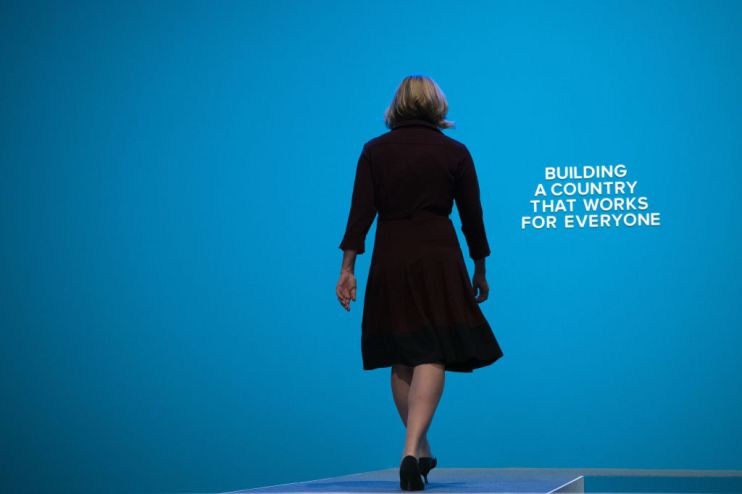Spare a thought this winter for our poor under-valued MPs

Why would anyone want to be an MP?
If the number of prominent parliamentarians who have announced that they are standing down in this election — now more than 70, including some shock names like Philip Hammond, Amber Rudd, and Tom Watson — is any indication, that question is getting more complicated to answer.
MPs, of course, have many different reasons for quitting, and the number of those leaving now is broadly in line with previous elections. Some are retiring at the end of long and illustrious careers, while others are abandoning marginal seats they know they have little chance of holding on to.
Then there’s Rory Stewart, who has forsaken his Cumbria seat for a walking tour of the capital in a bid to become London mayor, and John Woodcock, who revealed on Twitter that, with his partner expecting a baby, his priorities had shifted. Best of luck to both of them.
Still, there are more than a few who appear to be cutting short promising careers. And rather than questioning their motives, it is worth turning the premise around. What would inspire someone to give up a nice normal life for the bear pit that is the House of Commons?
It certainly isn’t money. The base salary from an MP is £79,468 — a fraction of what many could make in the private sector. Given that most MPs enter parliament after successful careers elsewhere (the average age of the 2017 intake was 50), many of them will have accepted a substantial pay cut to take their seats.
Nor is it respect, at least not anymore. A decade on from the expenses scandal (itself spurred in part by low MP salaries which made other forms of compensation more appealing), respect for our parliamentarians remains dire. According to CV-Library, 78.1 per cent of the public see politicians as the least trusted professionals.
Meanwhile, a Deltapoll survey from August found that just 13 per cent of people agreed that MPs “can be trusted to tell the truth”, and only 23 per cent thought that they had “strong principles”.
Admittedly, the figures were higher when people were asked to consider their specific local MP or either of the two main party leaders, but in terms of the parliamentary class in general, we don’t think much of them.
Disrespect may be relatively easy to shrug off, but outright abuse is not. The decline in public reverence for our representatives has been matched by the meteoric rise of social media. Politicians are now able — and, indeed, expected — to engage with the public directly. With a few notable exceptions (such as the veteran Ken Clarke), you’d be hard-pressed to find an MP or candidate without a Twitter account.
But more engagement also means more opportunity for abuse.
“You turn on your emails in the morning and you get a stream of people telling you they’d like to see you dead,” was the blunt takeaway from a recent interview with outgoing culture secretary Nicky Morgan, whose name was being floated as a potential leadership contender not all that long ago.
And Heidi Allen, another once-rising star who quit the Tory party in February and is now standing down as an MP, told her constituents that she was “exhausted by the invasion into my privacy and the nastiness and intimidation that has become commonplace”.
Others who are running again, from all parties, have also shared death threats and messages of vitriol they have received.
If this is the view of those already there, it’s reasonable to question the sanity of anyone volunteering to spend cold winter evenings knocking on doors begging for the chance to do the job — in an increasingly dilapidated building that is infested with vermin and where there is a substantial risk of a catastrophic fire.
This was the bleak assessment from one prospective MP in this election: “MPs spend their time jockeying between constituency and parliament, being abused online and knowing they might get booted out next time around. The able and hardworking earn less than they would in the outside world, with far worse conditions. Even a cursory glance at MPs shows how bad parliament can be for mental health and family life.”
Of course, it’s easy to argue that low salaries, poor work-life balance, and online abuse are a price worth paying for the chance to have a real impact on how the country is run.
And if you look at the number of applications for selection lists, it’s obvious that the desire to improve lives and combat injustice is a powerful motivator — as is the prospect of one day sitting around the cabinet table or being handed the keys to 10 Downing Street.
But is it powerful enough to entice the best people to give up well-paid careers where no one shouts at them in the street in order to spend the majority of their time away from their families arguing late into the night in a building that could catch fire at any moment?
In these febrile times, it’s often hard to feel sorry for MPs, especially the ones we disagree with. And anyone entering the public arena should be ready for a certain amount of robust criticism.
But if we want representatives who have the energy and intellect to tackle some of the most pressing challenges of the day (and let’s be honest, Brexit is only the start), it’s worth considering whether we should treat them a little better.
Main image credit: Getty